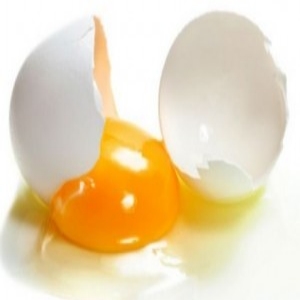

In the wild a cat might feast on a raw egg if it was left unattended. But does that make it OK for domesticated friends?
Not too long ago, it was not something to really worry about when cats and dogs headed for a nest and ate the eggs with no worries.
Pet owners did not really think much about whether the pets would be able to get any nutritional benefits from what they ingested, if there were any toxic effects from eating something raw, or if egg fragments could cause choking.
Nowadays however, nests are not as available to pets as they used to be, and people have become more aware not only of their health, but those of their beloved pets.
And while eggs can be considered as healthy, the question of whether it is safe given raw to a cat is a different matter altogether.
Can I Give My Cat Raw Egg? Answer: No
Raw eggs are usually not recommended for cats.
Although there have hardly been any reports regarding connections between diseases of animals from the consumption of raw eggs, safety must still be a priority. Raw eggs don’t offer essential health benefits to cats and could only become a source of problems.
This helps in the development of your pet’s teeth and bones. The best method of having your cat ingest egg shells safely is through the crushing method.
The eggshells are finely crushed and sprinkled over the kibble of your cat. While there is still no evidence to show that eggshells may cause salmonella for your pet, it would still be safer to boil them first. Once they are completely dry, you may use a food processor or coffee grinder for crushing.
The Egg Whites
There are some ingredients of egg white that are harmful to the development of your cat.
Avidin – The presence of Avidin in egg whites interferes with biotin absorption. Your cat will not be able to absorb B vitamins that are important to your cat’s skin.
Biotin deficiency can occur.
It means that if uncooked eggs are given to cats, they can potentially have dry, flaky and rough coat skin. Some of the serious health problems cats might experience are hyperkeratosis, hair loss, bloody diarrhea, flaky secretions around the nose, eyes and mouth and increased in salivation.
Bacteria – Bacterial contamination might occur. Salmonella and E. coli are just some of the bacteria that might be present in uncooked egg whites.
However, the egg yolk can be consumed raw. According to American Society for the Prevention of Cruelty to Animals, bacteria can pose serious danger to cats.
Cooking the egg yolk kills the bacteria present.
Foods that are Safe for Cats and Humans
Cats can eat meat because they are carnivores.
Always feed them cooked meat. Do not give them meat that is filled with salt or sugar.
Fat pieces shouldn’t be given to cats. The fat can give them diarrhea because of too many calories.
Fish gives cat a lot of nutrients.
However, not all types of fish can be eaten.
Swordfish, tuna and salmon should be avoided. They might have mercury that can cause poisoning. You can feed them cod, flounder and halibut. Fish is best served when cooked.
Some fish carries tapeworms that can be passed to your cats.
Vegetables can be fed to cats because of the energy that they get from it. However, they do not really absorb nutrients from it. Steam asparagus, broccoli, winter squash, green beans and chopped greens can be given to cats.
You can also give grass to help release stuck hairballs.
A small piece of cheese can be given to cats only if they really want it. Cats are naturally lactose intolerant and can acquire diarrhea from eating dairy product. If your cats can tolerate it, give them a small amount in a saucer.
Eggs are good for both humans and their pets alike. However, there are still certain precautions we need to take to ensure that they are safe to eat.
It does not really take a lot of effort to cook the eggs that we feed our cats. This way, we can be sure that they eat healthy food, in the safest possible way.
